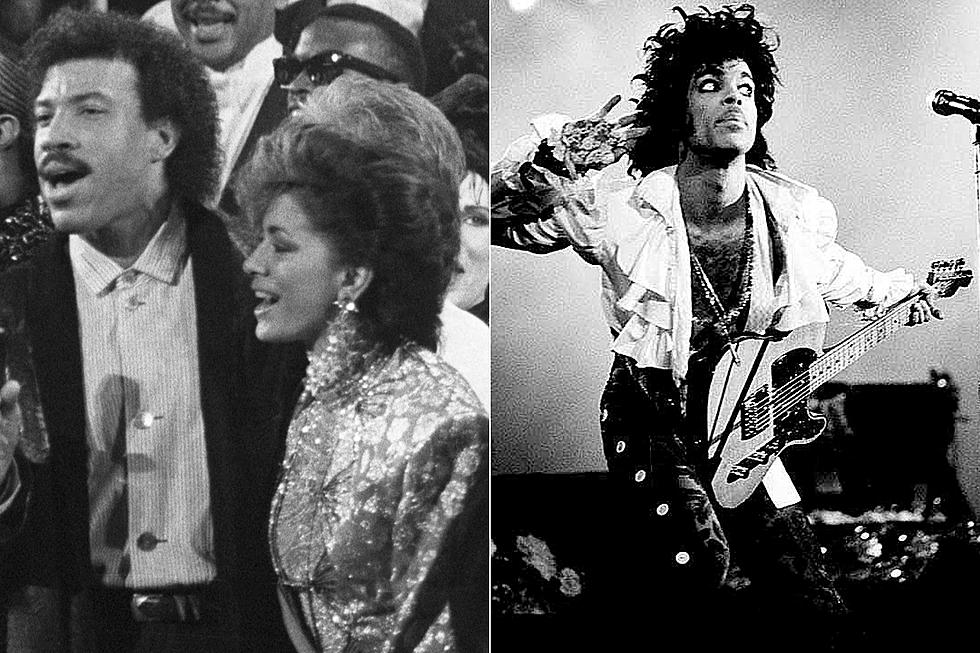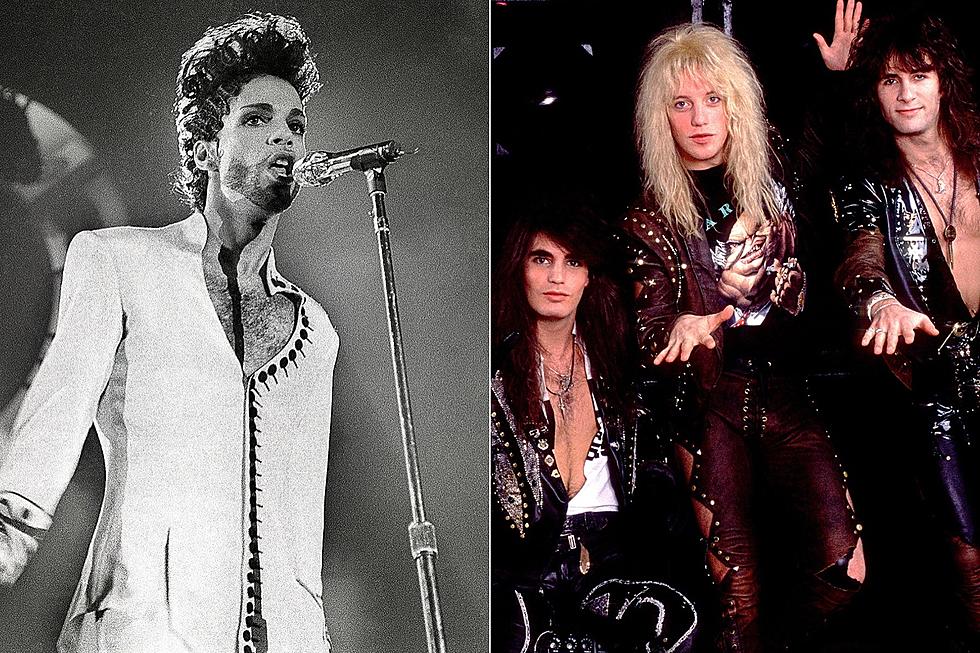
When ‘Annie Christian’ Haunted Prince’s Seedy, Art-Punk Fever Dream
"Annie Christian Sentenced to Die!" screams one of the newspaper headlines strewn behind Prince on the album cover to 1981's Controversy, exclamation point and all. Other front page stories backgrounding Prince include the biblical, yet not-really-newsy, "Do You Believe in God?" and "Love Thy Neighbor." Among these fictionalized leads, "President Signs Gun Control Act" stood as the sole clip intended to reflect a present national debate of the era. (And not just of that era, one might add.)
This mélange of themes—scandal and sensation; politics and religion—finds itself dispersed across a handful of songs on Prince's fourth album, however countered by danceable synth-pop confection—with one noticeable exception. "Annie Christian," Prince's boldest lurch toward something avant-garde (we'll call it avant-pop) disrupts Controversy's equilibrium with a late-in-the-album detour into a musical structure that sounds as though the song is degenerating in tandem with the wicked world it documents.
"Annie Christian," referring the listener back to the ill-fated faceless suspect on the cover of Controversy, is reintroduced as the specter-like protagonist who appears to have influenced any variety of tragic circumstances. An obvious play on the term "Anti-Christ," the backstory Prince offers Ms. Christian is one of a demonic rival vying "to be number one." And while "her kingdom never comes," Annie insists upon being the elusive His "only son." Evoking the Old Testament's Lucifer parable, Prince parallels Annie Christian's morbid desperate bid for stardom to the Fallen Angel's lust for the throne.
In stark contrast to Controversy's collection of instantly hooky rhythms that absorb you into the full fold of the song, "Annie Christian" invites you to decaying synths swirling out of sync with the thin electronic drum pulses. Even when the song quickly composes itself, it doesn't get less strange. A brittle programmed beat, muffled guitar licks and Prince's drowsy spoken verses foreground a spiraling synth pattern that inspires almost clinical insanity.
Yet what could be a more appropriate for the high crimes of this Annie Christ apparition? Prince, who performed all the instruments on the track (as he did on the majority of Controversy), was fully conscious of his foray into the deranged post-punk seediness of "Annie Christian" and the atmosphere it'd provide for such a maniacal tale.
Hear Prince Perform "Annie Christian"
And aside from the Luciferian allegory, the tale isn't wholly fictitious. The tragedies that Annie Christian supernaturally appears by comprised a number of the sensational maladies that weighed on early '80s. "She killed black children, and what's fair is fair," Prince sings, referring to the Wayne Williams murders. "If you try and say you're crazy, everybody say electric chair." Annie Christian, who also "killed John Lennon" and "tried to kill Reagan" manifests in the song as Prince's avatar for the looming evil he saw tormenting the dawn of the '80s.
"Annie Christian" isn't the most recognized song on Controversy, nor was it intended to be. But the stylistic experiments and off-kilter instrumentation assert it as a welcome interruption to the album's otherwise vibrantly danceable presence; and, with the darkly topical lyrical themes, a time capsule of the more controversial side of 1981
More From Ultimate Prince










